Following our experiences on the Laguna 69 day-hike with Quechuandes, we decided against signing up for the 4-day Santa Cruz trek. As disappointed as that decision made me, I knew at the time that it was the right thing to do. However we felt that the Cordilleras had so much to offer that we weren’t ready to leave Huaraz just yet. The solution? Find a day tour that involved a little bit of trekking but that wasn’t going to kill us. Pastoruri Glacier seemed to fit the bill perfectly.
Pastoruri is famous for being the only glacier in the world accessible by road, and is one of the few glaciers left in the tropical areas of South America. Although it has lost 22% of its size and 15.5% of its ice mass over the past 30-35 years, it still occupies around 8 square kilometres of land in the southern part of the Cordillera Blanca mountain range.
The tour we booked also included a stop along the way to see the gigantic and rare Puya Raimondi plants. Puya Raimondi are related to the humble pineapple, and are the largest bromeliad in the world. These plants can grow up to 12 metres in height, but they only bloom once in their 100-year lifetime, from May until July, when several species of hummingbird can be seen feeding upon their white flowers.
Despite it being May, unfortunately we weren’t lucky enough to see any in bloom, but – considering that Puya Raimondi only grow in a few isolated areas of the Andes (between altitudes of 3700 metres and 4200 metres) – I felt lucky to have seen them at all.
Having driven through some stunning mountain scenery on route to the glacier, we finally pulled into the car park at around 11am. It was a 1-hour hike to the base of the glacier – which stood at 5050 metres above sea level – or we had the option of taking mules.
After our gruelling Laguna 69 trek, Stu swore he’d never go hiking again, but I don’t think he fancied being the only person on a mule (male pride ‘n’ all) so he agreed to join me on two feet.
Having not yet found anywhere in Huaraz to buy coca leaves, we had come armed with several bags of coca candy that we’d bought from one of the hop-on-bus hawkers that you encounter throughout Peru. These are people who make their living by selling their wares to hungry bus passengers. Whether it’s a local bus you’re travelling upon or a tourist bus, whenever said bus stops (to let passengers on or off, or to allow passengers to visit the baño) one or more local women will jump on, basket of packaged food under their arm, yelling “chicharron!”, “empanadas!” or “habas!” (amongst others; I was once sold fresh fruit and yoghurt from a hop-on-bus hawker.)
So, armed with plenty of coca candy, we set off in the direction of the glacier. The only problem was that there were two pathways, and our guide had failed to instruct us which one we should take. Not really having anything to base our choice on, we rooted for left.
It turned out that left was the longer route, but also the more interesting one. Moreover we were the only people on it (ok, so maybe we missed an instruction I thought we’d never received, but in retrospect I’m glad we did.)
As we walked up the path – which had all been beautifully constructed using local materials, and designed to blend in with the surrounding landscapes – we approached a small wooden bridge, a little stone refuge, and a modest sign alerting us to the altitude of both the base and summit of Pastoruri Glacier.
This was higher than we’d climbed a couple of days beforehand yet neither of us were struggling with much more than a little breathlessness. We were bounding along taking photographs, and marvelling at the spectacle of colours all around us: that perfect blue sky, snow as white as the clouds above it, and the amazing richness of those rust-coloured waters.
Even the geology (which I confess I know very little about) fascinated me. Whilst the majority of the terrain was a combination of scree and larger shaped rocks and boulders, take a look at the contours of the massive solid rock surface to the top left of the photograph below.
It was almost like someone had sliced the rock open as if it were a piece of meat, leaving a textured but perfectly straight surface behind. Perfect for that obligatory arty starfish shot.
As we neared the glacier, the small smattering of clouds had almost completely dispersed, leaving a rich blue sky that contrasted perfectly with the snow-capped peaks before us and the expanse of ice that began to come into view.
There’s a thoughtfully-constructed wooden viewing platform, up to which you can climb, but it’s also possible to walk right down to the ice edge, and to touch parts of the glacier and even climb inside it (although I’m not sure this was strictly allowed.)
Possessing a keen interest in geology, and a fair amount of knowledge on the subject (due to his father’s influence as a geologist), Stu quickly noticed that a lot of the rocks around the base of the glacier contained large quantities of iron pyrite – more commonly known as ‘Fools Gold’.
So, whilst I spent my time marvelling at the colours and textures of the landscapes and geology, and composing shots which would help to compliment the two, Stu collected a few rocks…
He was given ample time to do this, as I was to feed the photographer in me, and when it was time to head back towards the bus in order to make the 2-3 hour return journey to Huaraz, we were able to take a different route to the one we chose to reach the glacier.
This meant that we passed incredible landscapes such as these, which never cease to delight and amaze me.
What also delighted me was the fact that we weren’t joining the growing number of people passing us on mules. We didn’t need to, for today our lungs felt healthy and our legs felt strong.
Altitude, you may have got the better of me on the Laguna 69 trek, but I’m so over you now 😉
Practical Info
- We booked our day tour with Quechuandes who are located at Avenida Luzuriaga 522. You can visit their website to see a full list of day tours and hikes, or email them (as I did) at info@quechuandes.com. They do reply incredibly promptly!
- As with any trek at altitude (no matter how short) I would recommend taking plenty of water, some coca leaves or candy, and some fruit to snack on.
Is seeing/touching/photographing a glacier on your bucket list?
If you like this article, please follow along on Facebook or Twitter, or you can look me up on Instagram or Pinterest too!
This is part of the #SundayTraveler link up, the spot to be to get the lowdown on all things travel.


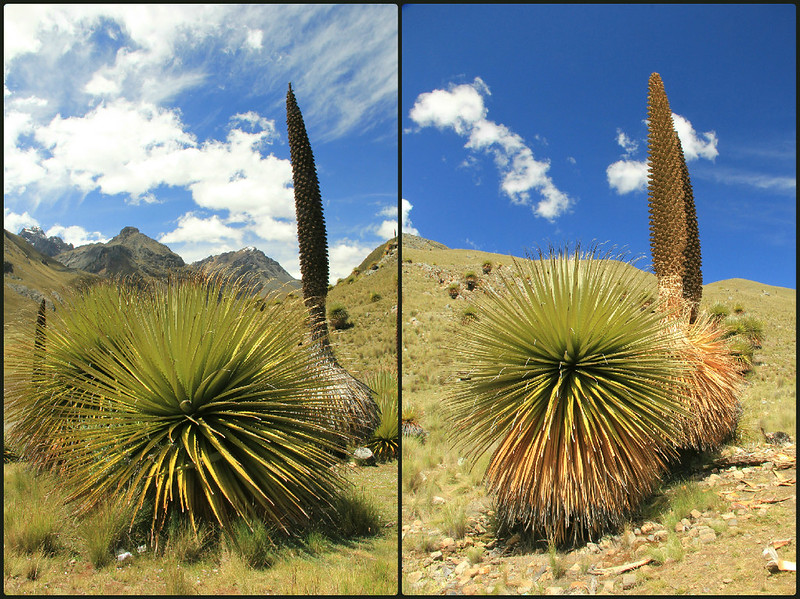
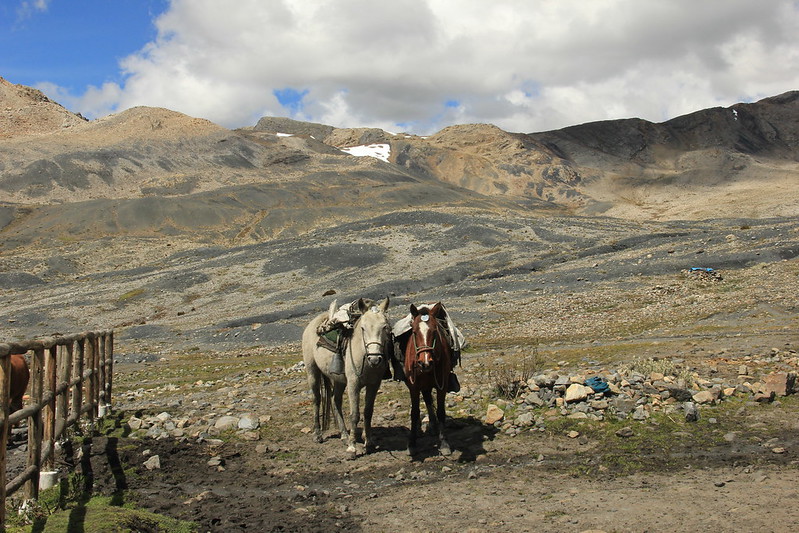
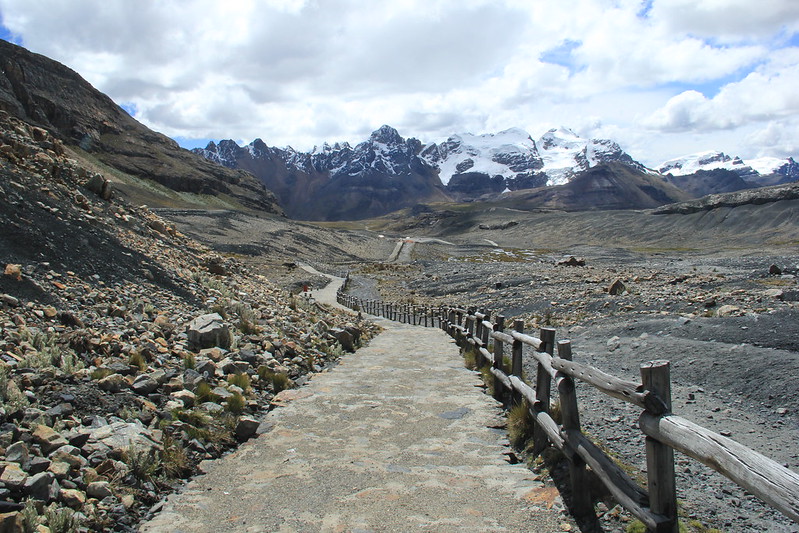
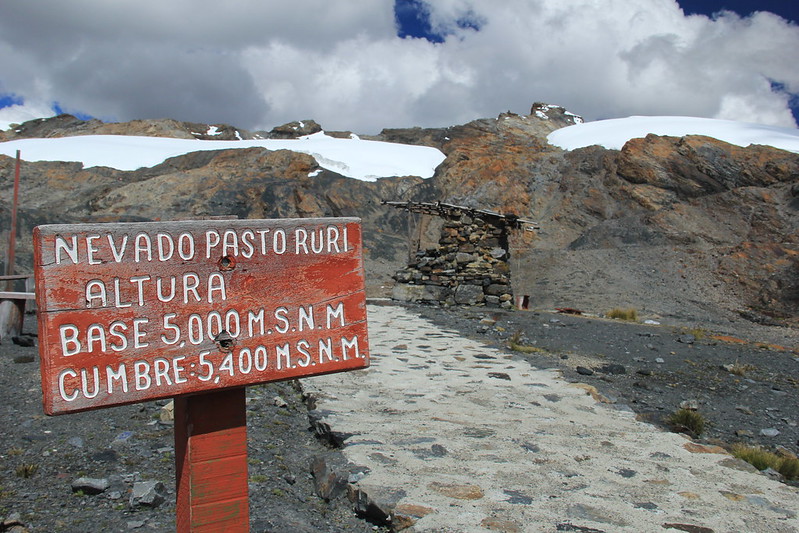
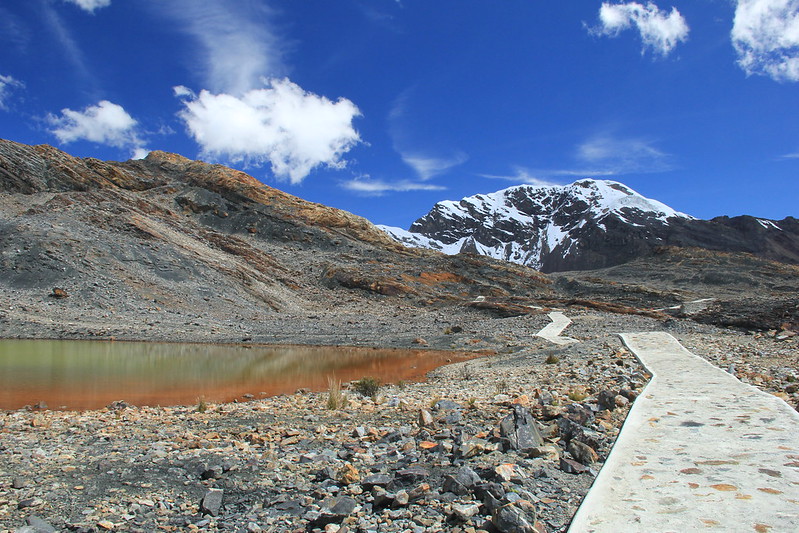
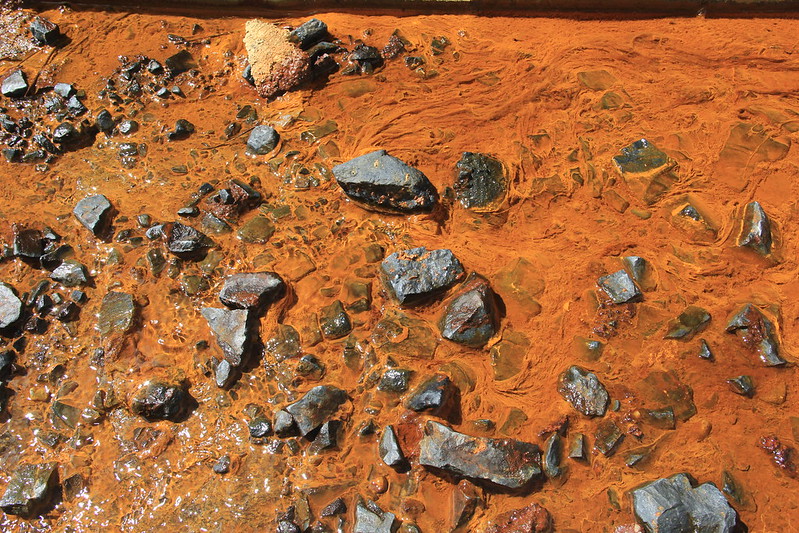
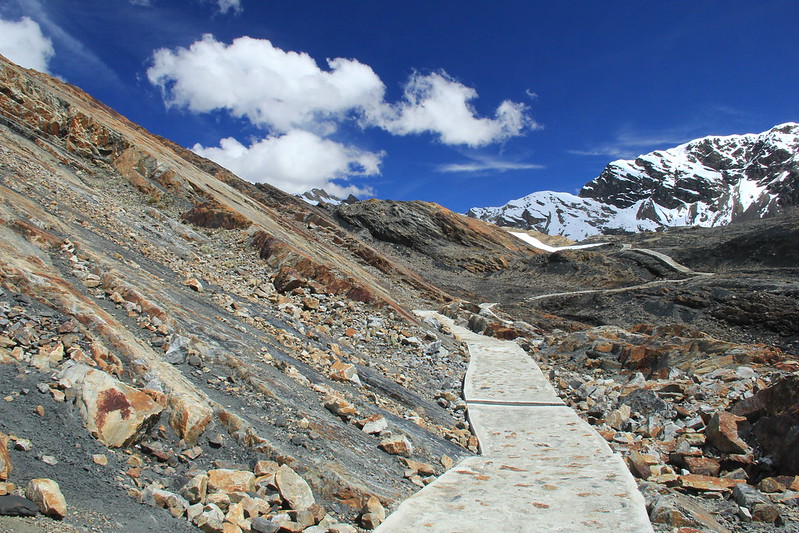
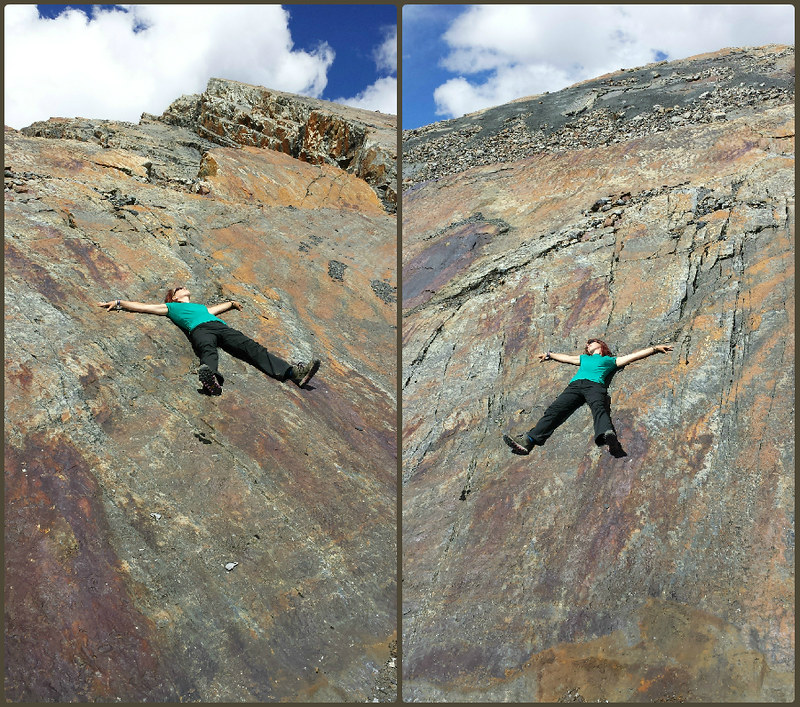
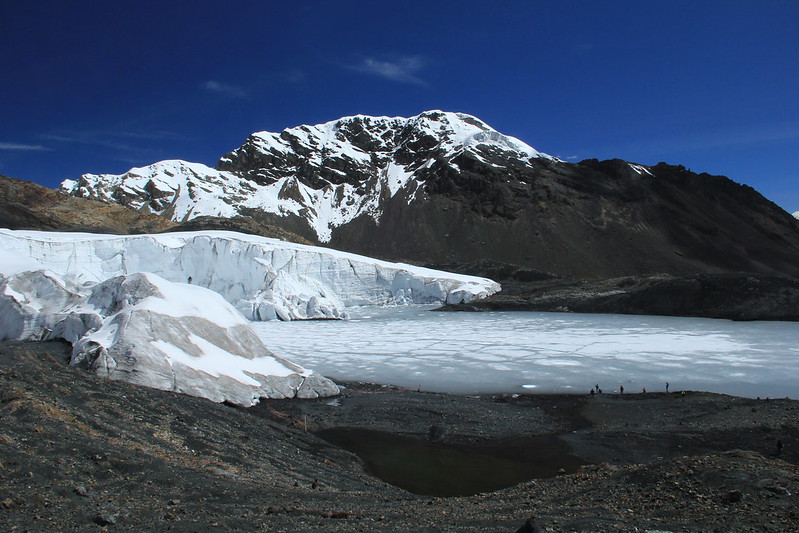
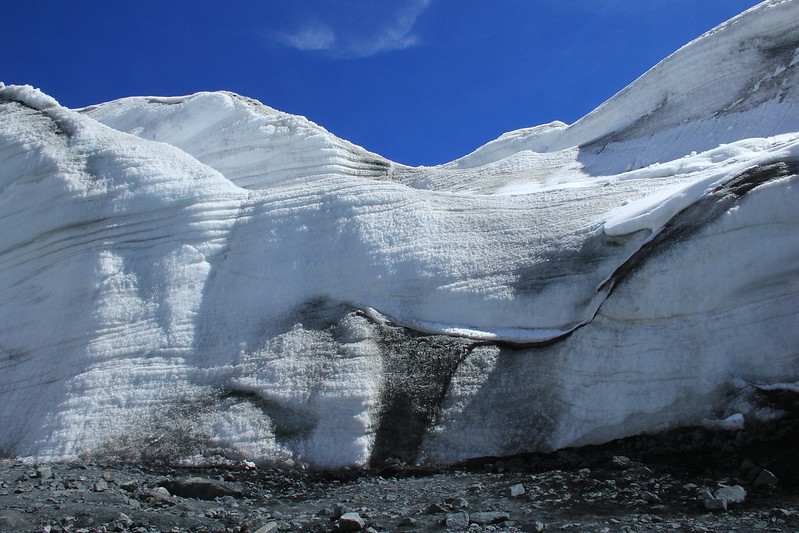
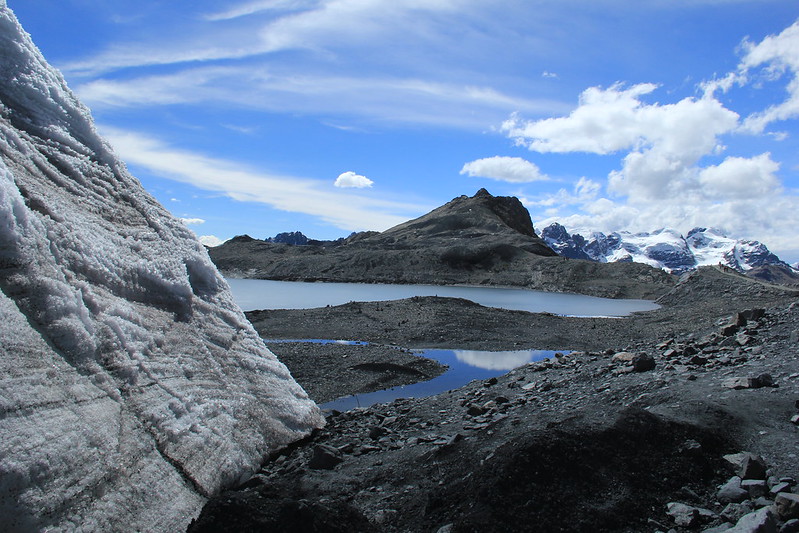
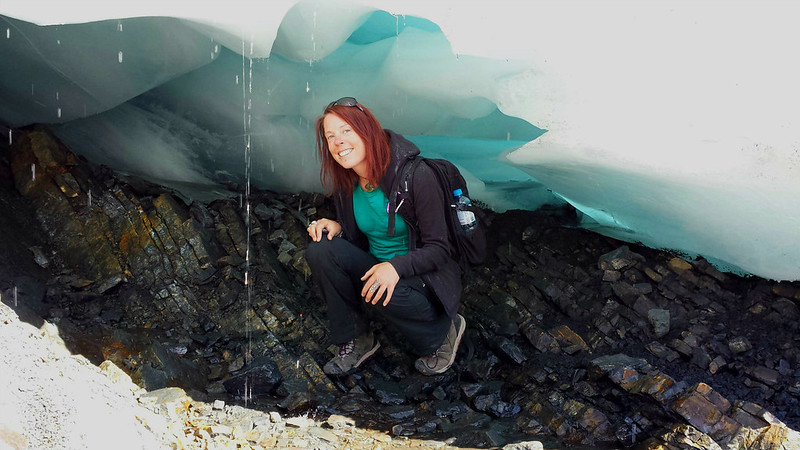
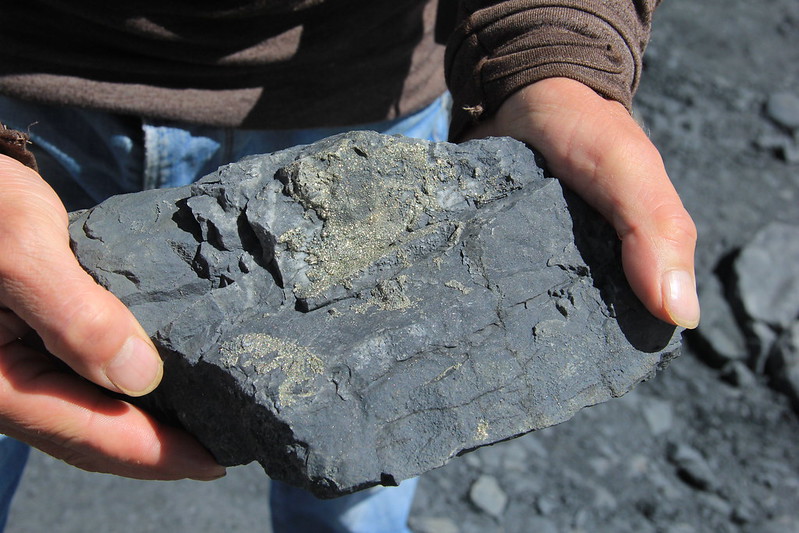
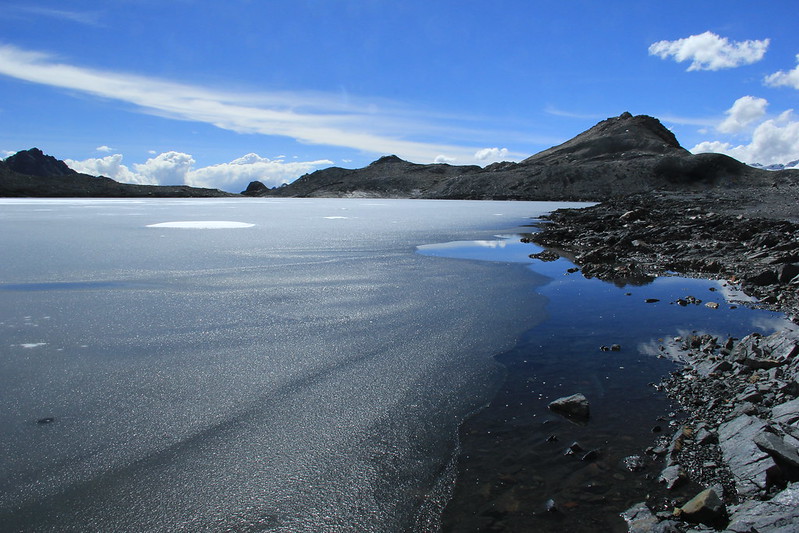
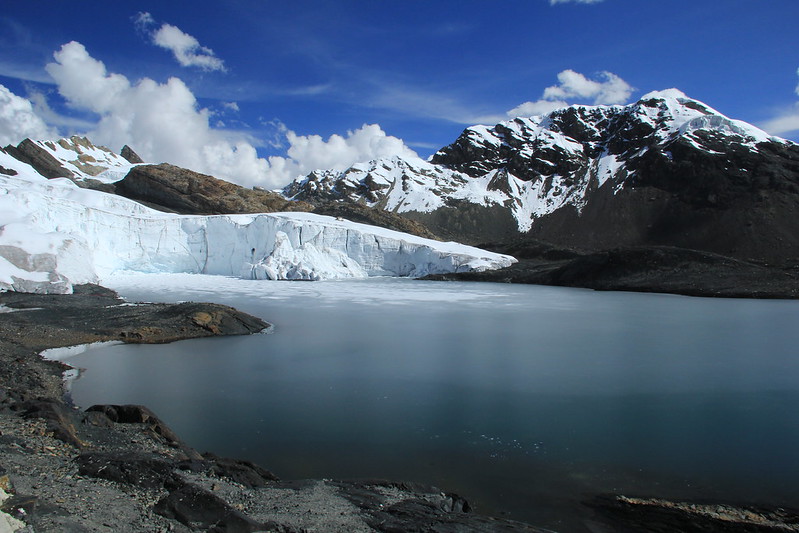
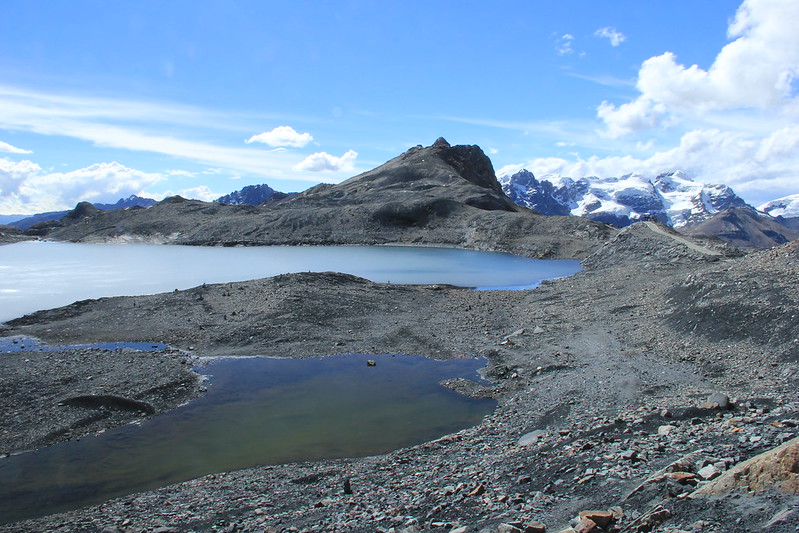
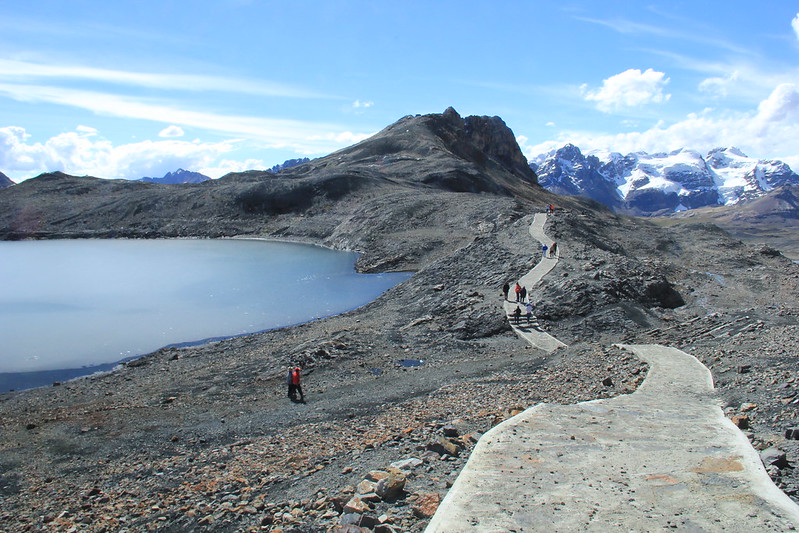
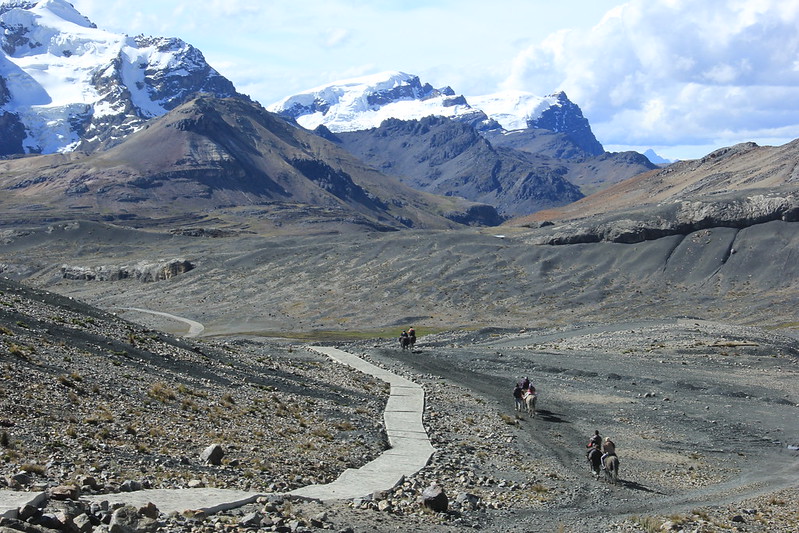





11 Comments
Re: «only glacier in the world accessible by road», in Switzerland there’s at least one glacier reachable by road, the Rhône Glacier just below the Furka pass. Click on my name for a TripAdvisor report. I’ve been there myself. It’s a fifteen minute walk from the road.
Thank you for correcting me Daniel! I got my information from Quechuandes, the tour company with whom I booked the trip to Pastoruri Glacier, and I could find nothing on the web to disprove it. Obviously I want the information on my blog to be accurate, so I will amend this fact. Thanks again 🙂
Kiara, I love it. I loved Iceland, and I love glaciers as well. I learned to really enjoy them when I lived in Alaska.
Yeah, I loved Iceland too, so many incredible landscapes 🙂
I’ve been on a couple Alaskan glaciers, but they didn’t have the interesting rock landscapes this one does – it reminds me a bit of Denali. Really cool!
Also, not having the impediment/benefit of male pride, I think after a 69-mile hike I would have happily taken the mule. 😀
Haha it wasn’t a 69-mile hike, it was just called ‘Laguna 69’ (I’ve no idea why!) but it certainly felt like a 69-mile hike due to the altitude!
Wow, this is stunning. When you hear Peru you definitely don’t think about glacier or ice really. I love that photo of you under the ice too even if it wasn’t technically allowed 😛
Yeah that photo had to be done…I wasn’t going to get that close to a glacier and not come away with photographic evidence to prove it 😉
I am glad you beat the altitude! Now you know you’re a traveller!
Haha, yeah 😉 Unfortunately I’ll have to go through the whole acclimatisation process again next time I travel/hike at altitude, but at least next time I’ll have a reasonably good idea about how my body copes with it all 🙂
Brilliant, thanks, I will visit again later!